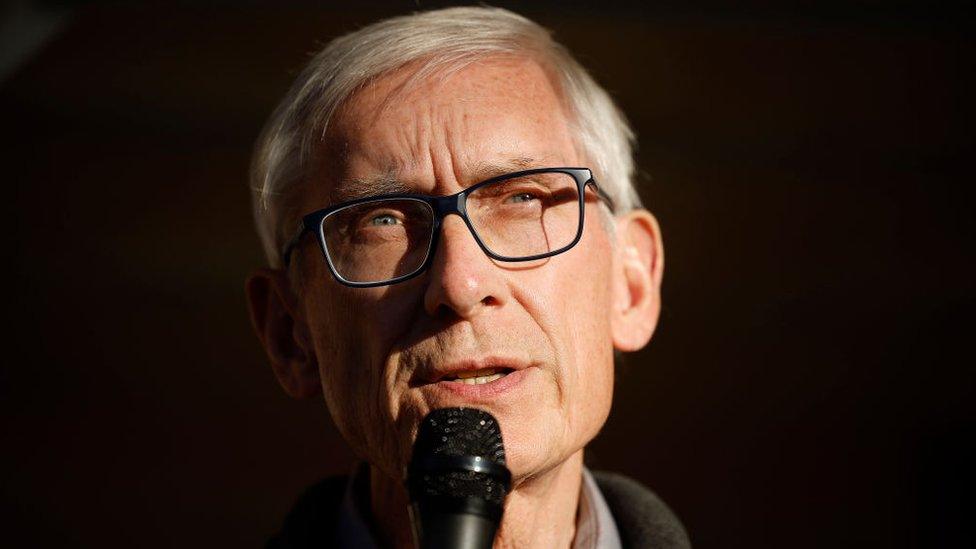Wisconsin will raise public school funding for the next 400 years
- Published

Democratic Wisconsin Governor Tony Evers used his authority to get creative with the state budget
With a creative line-item change to the state budget, Wisconsin's governor has enacted four centuries of spending increases for its public schools.
State law allowed Democrat Tony Evers to strike words and digits from a revenue hike proposed until 2025, instead locking in the funds till 2425.
Republicans have reacted with fury to what they call "an unprecedented brand-new way to screw the taxpayer".
The move could however be undone by a legal challenge or future governor.
It is the latest tussle between Mr Evers, a former public school teacher who narrowly won re-election last year, and a Republican-controlled state legislature that has often blocked his agenda.
Their original budget proposal had raised the amount local school districts could generate via property taxes, by $325 (£250) per student, for the next two school years.
But Wisconsin allows its governors to alter certain pieces of legislation by striking words and numbers as they see fit before signing them into law - what is known as partial veto power.
Both Democrats and Republicans have flexed their partial veto authority for years, with Mr Evers' Republican predecessor once deploying it to extend a state programme's deadline by one thousand years.
This week, before he signed the biennial state budget into law, the governor altered language that applied the $325 increase to the 2023-24 and 2024-25 school years, vetoeing a hyphen and a "20" to instead make the end date 2425.
He also used his power to remove proposed tax cuts for the state's wealthiest taxpayers and protect some 180 diversity, equity and inclusion jobs Republicans wanted to cut at the public University of Wisconsin.
"There are lots of wins here," Mr Evers said at the budget signing ceremony on Wednesday.
In a statement, he said he had "improved through strategic vetoes" a bill that was "imperfect and incomplete", touting its "substantial categorical aid increases for our schools".
State Republicans blasted the measure, warning it would result in massive property tax increases.
"Legislative Republicans worked tirelessly over the last few months to block Governor Evers' liberal tax and spending agenda," Assembly Speaker Robin Vos said in a statement.
"Unfortunately, because of his powerful veto authority, he reinstated some of it today."
Vetoes cannot be overridden unless there is a two-thirds majority of the assembly in favour, which is unlikely as that would require Democratic votes.
But Rick Esenberg, director of the conservative Wisconsin Institute for Law and Liberty, told the Associated Press he expected a legal challenge to the veto, calling it "a ridiculous way to make law".